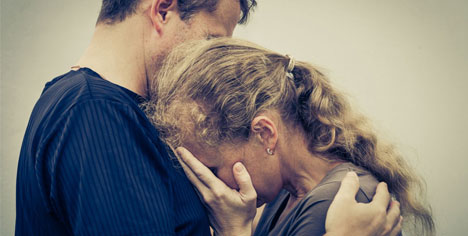 Do you expect your relationship to fulfill you in all ways, at all times? Sometimes when we expect too much from our relationship, the pressure can lead to collapse.
Do you expect your relationship to fulfill you in all ways, at all times? Sometimes when we expect too much from our relationship, the pressure can lead to collapse.
The demands for perfection in relationships we put on ourselves and our romantic partners can be unrealistic. Once we find “our person,” it feels like we have it made. Finally, we have someone to share and connect with. We’re no longer alone. And yet…
After a brief honeymoon period, things slowly change. Suddenly, our perfect partner isn’t so agreeable, affable, perfect, quirky, cute, appealing, Mr.SuperMan or Ms. WonderWoman anymore…
Making a romantic relationship work long-term requires accepting ourselves and our partners as human, and not expecting the relationship to make it all good.
Why we expect too much from relationships?
Society, especially the media, gives us mixed messages about marriage and partnership. Marriage, in particular, has also shifted over the generations. From being an arrangement for practical purposes, now, in most parts of the world, it is expected to be a source of emotional fulfillment.
We expect our long-term partner to be our source of security and comfort, as well as novel and interesting. We want and are drawn to the headiness of fresh love.
It’s easy to get confused and to want and expect it all.
So what happens when your relationship expectations aren’t met? You may feel disillusioned. You might even feel “cheated” out of the ideal relationship you envisioned and felt entitled to.
If you expect too much from relationships, you also might feel your partner should:
- Be your best friend, advisor, and confidante
- Always be in the mood you need them to be so that you feel known, heard, seen, and understood
- Ready to connect with you at all times, every day
These expectations are common, but also unrealistic. One way to address this kind of magical thinking begins with embracing a new relationship model.
Here’s what a real relationship looks like
You might be surprised to discover that long-term relationships can involve certain “negative” qualities such as:
Disconnection. There will be some moments where your partner doesn’t want to connect. There will be times when you will not understand your partner and your partner will not understand you.
Routine. Most likely, you won’t experience novelty and excitement every day. There could be a “mundane” aspect to the relationship. However, many couples find positives in this — namely predictability, consistency, comfort, and companionship.
Temptation. You and your partner both may have attractions to other people. For some people, remaining committed to your relationship — and faithful — is more of a choice than a part of the natural dynamic.
Now what?
Another key to long-term healthy relationships is to recognize that it takes effort to stay together and to be willing to put in your share of effort. Know that your “happily ever after” requires work.
Turn the gaze inward to ask “How can I be a better partner?” This is an insight-provoking question that can lead to fulfilling changes.
If you or anyone you know is struggling in their relationship, do not hesitate to reach out for support from a specialist.
FREE CONSULTATION: Call us today at 949-229-2715 or email info@couple-care.com for more information. Psychotherapy services and couples retreats are offered throughout the week and on weekends. We do not do group work.
